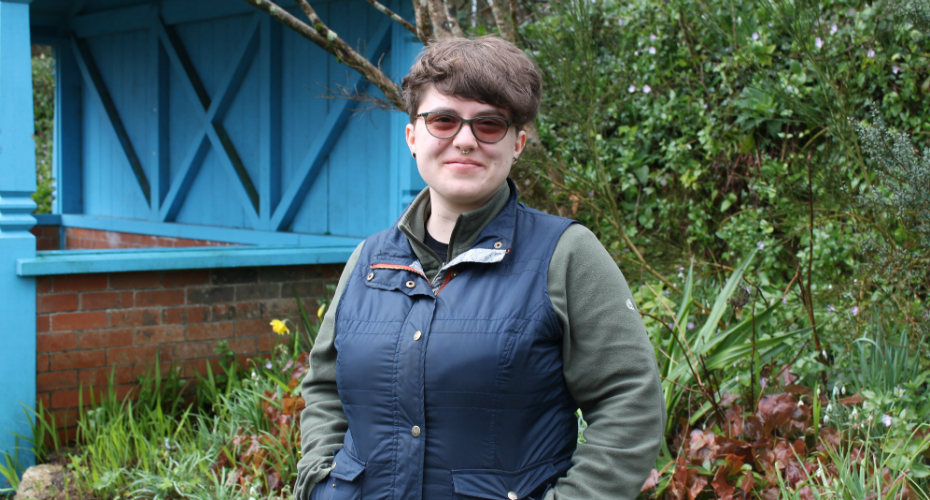Collective change to help our earth: EcoSoc (Ecological Society)
Times are tough and the challenge of reversing the climate and environment catastrophe may feel insurmountable, but the next generation are doing great things every day, and from the moment they arrive to study with us, they’re getting involved to make positive changes happen.
All members of our University community are instrumental in tackling the threats which face our earth and one of the groups who are passionate about raising awareness and passing on knowledge of how to look after our earth is EcoSoc (Ecological Society) which is based on our Penryn Campus.
EcoSoc is one of the largest societies on the Penryn Campus, and aims to give everyone the opportunity to learn about nature, experience Cornish wildlife, gain skills in ecology and conservation, help local projects and raise the profile of wildlife.
Robyn is the current president of EcoSoc and in her final year of studying for her Masters in Zoology. She grew up with wildlife being a huge part of her life as her mum is a natural artist. These early life experiences led to a life-long passion to care for the natural world, as well as to educate and inspire others. Hence she got involved with EcoSoc and has taken part for three years now. On becoming President of the society for 2019-20 Robyn has worked with her committee to change the society’s focus so that it also appeals to people beyond those studying Biosciences.
EcoSoc played a big part in Robyn’s decision to study at Penryn Campus as she knew that she wanted to pursue her passion alongside her degree. EcoSoc organise a number of activities which include mammal trapping to survey what lives around the campus; bird walks to reserves; bird ringing to track bird movements; pond dipping (and working with the Estates Teams to maintain the ponds). The society also works with local organisations like the South West Lakes Trust to survey wildlife. This activity benefits not only the local wildlife but also the students as it gives members practical experience. The society is well regarded in the local community so when organisations such as the Butterfly Conservation receive a CV with participation in EcoSoc on it, they will value that experience.
The society’s work has a wide ranging impact as the data that EcoSoc and their members collect from around the campus is also used in discussions with the Estates team for their planning and data from the surveys goes to the Environmental Records Centre for Cornwall and the Isles of Scilly (ERCCIS) as well as the British Trust for Ornithology (BTO). This data helps organisations monitor the population and our effects on their habitats.
EcoSoc have already completed more than 87 events since September 2019 and prior to the COVID-19 outbreak they had organised a Natural Wellbeing week collaborating with Ambition in Minds (AIM), Falmouth University’s and University of Exeter’s first student based mental wellbeing and mental health society, to promote wellbeing in nature and highlighting local activities and places that people can get to from Penryn without a car. These activities are ones which the society will look to rearrange for the future. The benefit of green spaces and importance of outdoor spaces to mental health is also an area researchers at our University have been exploring in their work.
Due to COVID-19, the society have now moved their presence online and host a weekly themed schedule of posts, sharing nature-inspired artwork from members and showcasing DIY projects for the garden to encourage wildlife. They of course will revisit holding physical events in the future once it is safe to do so.
The main challenge that Robyn believes we have to face in regards to climate change and our earth is “getting people to care enough and there is a problem that sometimes if issues don’t affect people directly they will prioritise people being comfortable over the future of the planet”.
Ultimately whatever stage of life or situation you are in you can make a difference to the future of our planet because as Robyn says: “It’s not about a few people doing it perfectly, but about lots of people doing it imperfectly.”

